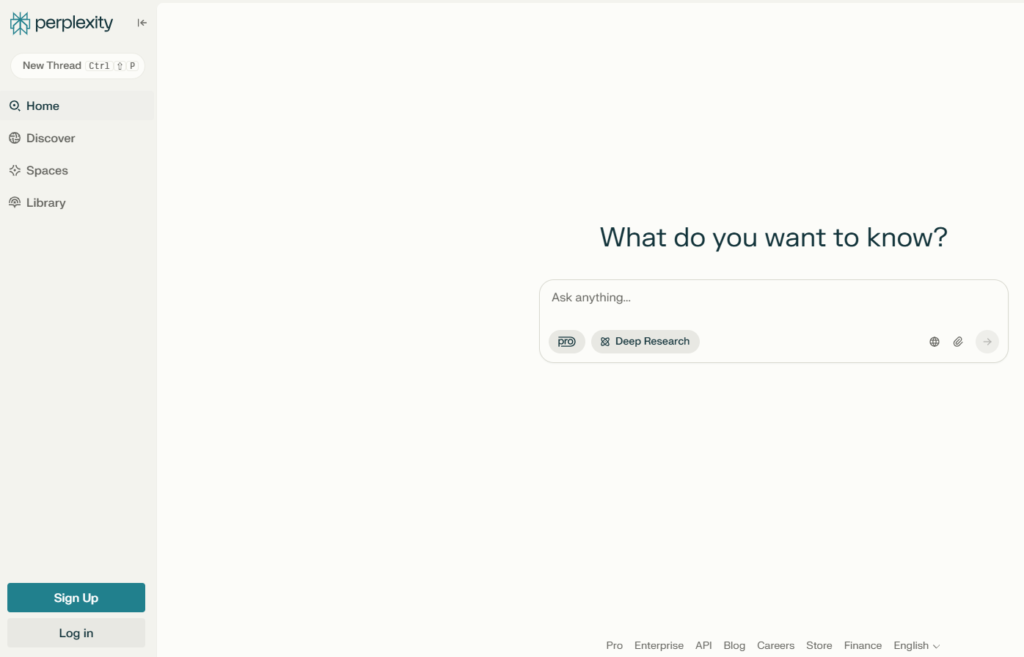For More Free Videos, Subscribe to the Rhodes Brothers YouTube Channel.
“AI is very unlikely to kill Google for the reasons that I have outlined in this training.”
— John S. Rhodes, Rhodes Brothers
Imagine waking up tomorrow and Google is gone. No more “just Google it” — a phrase so common it’s practically part of our DNA. Sounds wild, right? But with the rise of artificial intelligence, especially tools like ChatGPT, Gemini, and Claude, many are wondering: Is AI killing search engines?
The truth? It’s not that simple — and that’s exactly what we’re going to unpack.
In this article, we’ll explore why AI isn’t killing search engines, but instead transforming them. You’ll learn how AI is reshaping how we search, what’s changing behind the scenes, and most importantly, how you can leverage this shift to stay ahead whether you’re a business owner, freelancer, or just a curious tech enthusiast.
We’ll cover:
- Why search engines aren’t going away anytime soon
- How AI is augmenting rather than replacing search
- Real-world tools and strategies you can use to profit from this technological evolution
- Common misconceptions and how to avoid them
- What the future of search will likely look like — and how to prepare
“It’s not about replacement. It’s about integration and augmentation.”
— John S. Rhodes
TL;DR
🔍 Search engines aren’t dying — they’re evolving alongside AI.
🤖 AI is becoming part of search, not a stand-alone replacement.
💡 Google and other tech giants are adapting, not collapsing.
💰 You can leverage AI-powered search for better research, marketing, and monetization.
🚫 Avoid the myth: AI is not a one-size-fits-all solution or a job killer — it’s a tool for growth.
Why AI Isn’t Replacing Search Engines — It’s Enhancing Them
Let’s start with the obvious: Google isn’t going anywhere.
Despite the AI boom, most people still rely on search engines for everyday queries. Why? Because search engines are:
- Familiar and easy to use
- Integrated into daily life (phones, browsers, smart devices)
- Incredibly profitable (billions in ad revenue)
Analogy time: Just like newspapers, radio, and TV didn’t disappear when the internet arrived — search engines won’t vanish with AI’s rise. They’ll adapt.
AI: The New Power Behind the Scenes
What’s really happening is a shift. AI is getting embedded into search engines, making them faster, smarter, and more personalized.
You’ve probably already seen this:
- AI-generated summaries at the top of Google search results
- Microsoft Bing’s ChatGPT integration
- Google’s Gemini offering conversational answers
These aren’t replacements — they’re enhancements.
How to Leverage AI-Enhanced Search (Step-by-Step)
Let’s face it — the way we search for information is evolving fast. Gone are the days when typing a few keywords into Google was the only (or best) way to get answers. Now, with AI-powered tools built right into search engines or running alongside them, we have smarter, faster, and more personalized ways to find exactly what we need.
But here’s the kicker — most people aren’t using these tools to their full potential.
Whether you’re a student trying to study better, a freelancer speeding up your workflow, or a business owner looking to improve customer support and marketing, this section will show you exactly how to tap into AI-enhanced search like a pro.
Step 1: Use AI Tools That Integrate with Search
Here are some powerful tools that blend AI and search:

- Perplexity.ai – Combines search with citations and conversational AI.
- ChatGPT Web Browsing – Summarizes articles and finds up-to-date info.
- Google Gemini (formerly Bard) – Gives insights with contextual understanding.
- You.com – Customizable AI-powered search.
💡 Pro Tip: Use AI to refine your research, generate content ideas, or summarize complex topics quickly.
Step 2: Optimize Your Content for AI + Search
If you’re a creator, marketer, or business owner:

- Use structured data (like Schema.org) to improve visibility
- Write content that answers questions, not just keyword-stuffed fluff
- Create multimedia — AI-enhanced search now includes video, audio, and images
- Think beyond text. AI search often pulls from diverse content formats.
Step 3: Profit from the Shift
Here’s how different people can benefit:
- Beginners / Students
- Use AI search for study hacks, summarizing readings, or learning new skills fast.
- Freelancers / Creators
- Speed up research with AI-assisted tools
- Offer AI-optimized SEO services to clients
- Business Owners
- Build AI-powered chatbots for customer support
- Use AI-driven keyword research tools like Surfer SEO or Frase.io
Actionable Steps for Different Demographics
Whether you’re a student trying to ace your next exam, a freelancer juggling multiple clients, a business owner optimizing operations, or someone nearing retirement just trying to stay informed — AI-enhanced search has specific, practical benefits for you. Here’s how to tap into it, based on where you are in life or work.
For students and beginners, AI can become your smartest study partner. Instead of spending hours skimming dense textbooks, tools like Perplexity.ai or Google Gemini can summarize long articles in seconds, making it easier to grasp core concepts. Have an assignment due? Just paste the prompt into ChatGPT or Gemini to get outline ideas or even a structured draft to work from. If you’re preparing for exams, you can use AI to convert your lecture notes into interactive flashcards with platforms like Quizlet AI. And when a complicated topic arises — say, quantum mechanics or financial literacy — you can simply ask the AI to “explain it like I’m 12,” and instantly get a simplified, digestible version. Combine this with traditional search for fact-checking, and you’ll be learning smarter, not harder.
For freelancers and content creators, AI search tools are a goldmine for productivity. Writing SEO-optimized blog posts or social media content becomes faster with tools like Frase.io or SurferSEO, which help you structure your content around the latest keyword trends. By blending traditional search with AI (such as using You.com for competitive research), you can brainstorm and refine ideas at lightning speed. Need to handle multiple client briefs? AI can automate research, summarize competitor content, or even build chatbots for client websites using tools like Tidio. This not only saves you time, but positions you to offer AI-powered content services—a value-added offering that can boost your income and client retention.
If you’re a business owner or entrepreneur, AI-enhanced search can dramatically improve how you run and grow your business. For starters, use platforms like Gemini or Perplexity to uncover market trends and analyze competitors in real time. Then, automate customer service with tools like Intercom or Zendesk AI, which can handle FAQs, support tickets, and even conversions without human intervention. Want to improve your marketing? Use AI-driven keyword research to build high-performing ads, blog posts, or landing pages. And for your backend? Integrate these tools into your CRM or analytics platforms to make smarter, data-driven decisions. The result? You free up hours of time while reducing costs and scaling smarter.
Lastly, for those nearing retirement or who consider themselves non-tech savvy, AI might sound intimidating — but it doesn’t have to be. In fact, AI search tools are designed to work just like a conversation. You can ask plain-English questions about retirement planning, health concerns, or hobby ideas using ChatGPT or Gemini, and get friendly, useful answers. Want to understand a complex investment article? Ask the AI to summarize it or explain key takeaways. Looking to pick up a new hobby or plan a dream trip? AI-enhanced search can give you curated suggestions in seconds. And if typing isn’t your thing, just try voice-based AI assistants, like Google’s voice search, to interact hands-free. No tech background needed — just curiosity and a few clicks.
No matter your background or goals, AI-enhanced search is your shortcut to smarter decisions, faster learning, and greater productivity. The key is to start using these tools intentionally — not just as search engines, but as intelligent assistants tailored to your life.
Common Mistakes to Avoid (And How to Fix Them)
🚫 Mistake #1: Assuming AI Replaces Everything
The Myth: “AI is going to eliminate search engines, SEO, and probably half of all jobs.”
The Reality: AI is a powerful tool, but it’s not a silver bullet. It enhances human work—it doesn’t replace the need for thinking, judgment, and nuance.
Why This Matters:
- AI lacks real-world experience and emotional intelligence.
- It can’t ethically evaluate context or consequences.
- It still depends on human training data and logic.
Example: An AI like ChatGPT can summarize a legal document, but you still need a lawyer to interpret how that document affects your specific case.
Fix It:
- Treat AI as a co-pilot, not a driver.
- Use it to accelerate tasks, not to make final decisions.
- Pair AI insights with your expertise or a trusted advisor’s input.
🚫 Mistake #2: Relying on AI Blindly
The Myth: “If AI says it, it must be true.”
The Reality: AI models like ChatGPT, Gemini, and Claude are prone to hallucinations—a term for confidently delivering incorrect or made-up information.
Why This Matters:
- AI may pull from outdated or misinterpreted data.
- AI-generated content may lack source attribution.
- Overreliance can lead to misinformation being shared or acted upon.
Example: A finance blogger used AI to write an investment guide, only to find the stats were from 2019 and the advice conflicted with current tax laws.
Fix It:
- Cross-check AI-generated outputs with verified sources.
- Use tools like Perplexity.ai, which cite sources directly.
- When in doubt, ask follow-up questions or consult a human expert.
🚫 Mistake #3: Ignoring Integration Trends
The Myth: “Search engines and AI are separate tools.”
The Reality: The most powerful platforms—Google, Microsoft, Amazon—are already merging AI and search into one seamless experience.
Why This Matters:
- If you only focus on traditional SEO, you’ll miss AI-powered result placements.
- Ignoring voice search, visual search, and AI summaries puts you behind competitors.
Example: A business owner focused only on ranking on Google’s organic listings—meanwhile, AI snippets and summaries were getting all the clicks.
Fix It:
- Optimize content for AI’s preferred formats: structured data, FAQs, and conversational answers.
- Embrace multimodal content (text, video, voice, images) that AI-enhanced search surfaces more often.
- Stay updated on how Google’s Search Generative Experience (SGE) and other platforms are evolving.
Frequently Asked Questions
Is AI going to replace Google?
No. AI is being added to Google, not replacing it. Google is evolving to stay competitive.
How is AI used in search engines?
AI helps improve query understanding, generate summaries, and personalize results.
Which search engines use AI?
Google (Gemini), Bing (ChatGPT), You.com, and Perplexity.ai are leading the way.
Can I use AI to improve my SEO?
Yes! Use tools like Surfer SEO, Jasper, or Frase.io to optimize content for AI + search.
Will AI kill SEO jobs?
No — but it will change them. Learn to work with AI to stay ahead.
How can businesses use AI in customer support?
Build AI chatbots using tools like Tidio, Intercom, or Zendesk AI.
What’s the best AI search tool right now?
Perplexity.ai is great for research. Google Gemini for general use. You.com for customization.
Is AI search better than traditional search?
It depends. AI is great for summaries and conversational queries. Traditional search excels at link-based research.
How do I get started with AI-powered search?
Start with free tools like Google Gemini or Perplexity.ai and explore their features.
Is AI a threat or opportunity?
It’s an opportunity — if you learn to use it. Like any tool, its value depends on how you wield it.
The Evolution Is Already Here
AI isn’t killing search engines — it’s making them stronger, faster, and more useful. The future of search is not a war between AI and Google, but a partnership. And the best part? You can be part of it.
Whether you’re a student, business owner, or creative, there’s a massive opportunity here to leverage AI-enhanced search for growth.
So, the next time someone asks, “Is AI killing search engines?” — you’ll know the real answer.
🔔 Get started today by exploring tools like Gemini and Perplexity.
📥 Download an AI-powered SEO tool and start optimizing your content.
🔥 Stay ahead of the curve by upskilling and integrating AI into your workflow.
Thanks for reading! If you found this article helpful, don’t forget to: Subscribe to the Rhodes Brothers YouTube Channel for more insights on AI, search, and digital transformation.
Resource List
Books
- AI Superpowers by Kai-Fu Lee
- Deep Learning by Ian Goodfellow
- The Age of AI by Henry Kissinger, Eric Schmidt
Courses & Podcasts
- Coursera – AI For Everyone by Andrew Ng
- Lex Fridman Podcast – AI and tech episodes
Tools & Platforms
- Perplexity.ai – AI + Search engine
- Google Gemini – Conversational search
- You.com – AI-powered customizable search
- ChatGPT with browsing – Real-time information
- Frase.io – AI-driven content creation
- Surfer SEO – Content and SEO optimization
- Tidio / Intercom – AI-powered customer support
- Zapier – Automate tasks between AI tools and platforms
- Synthesia – AI video creation
- Descript – AI-powered audio + video editing
- Notion AI – All-in-one productivity with AI





